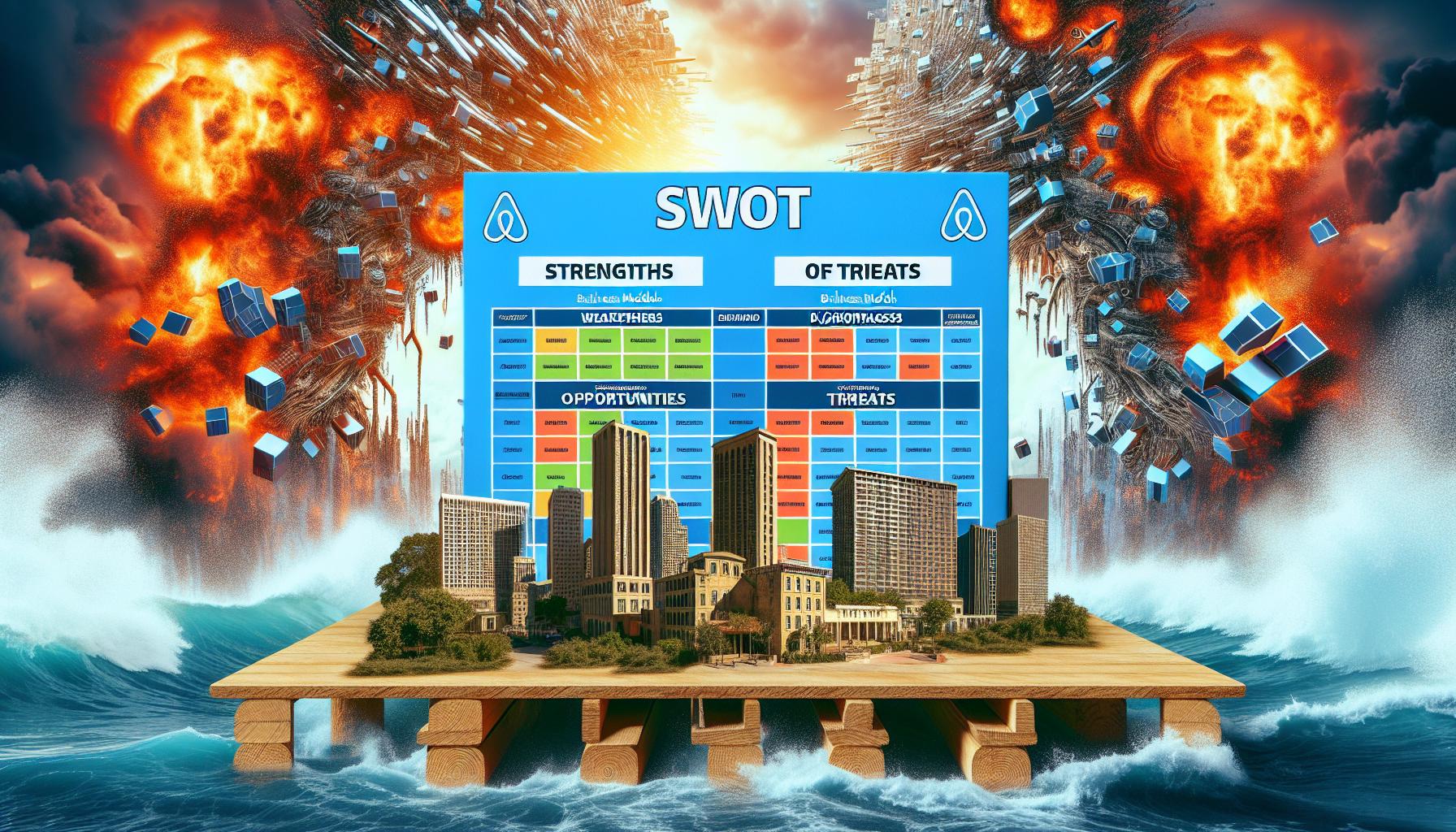Airbnb and Traditional Hotels: Analyzing the Changing Landscape
The travel and lodging industry has undergone a significant transformation over the past decade with the rise of Airbnb. This online marketplace has disrupted the traditional hotel industry by connecting travelers directly with hosts who rent out their homes, apartments, or rooms. This article will analyze the changing landscape of travel and lodging, comparing Airbnb’s strengths and opportunities with the challenges faced by traditional hotels. Additionally, a SWOT analysis will be conducted to assess the weaknesses and future trends in this industry.
The Rise of Airbnb: Strengths and Opportunities
One of the major strengths of Airbnb is its ability to provide unique and personalized experiences for travelers. Unlike traditional hotels, Airbnb accommodations are often located in residential neighborhoods, allowing guests to immerse themselves in the local culture. This has become a significant selling point for Airbnb, especially among millennials who prioritize authenticity and local experiences.
Another strength of Airbnb is its affordability. In many cases, Airbnb accommodations are cheaper than traditional hotels, making it an attractive option for budget-conscious travelers. This cost advantage has allowed Airbnb to capture a significant market share, particularly among young travelers and families.
Furthermore, Airbnb offers hosts the opportunity to earn extra income by renting out their properties. This has created a vast network of hosts who are motivated to provide exceptional hospitality to their guests. The personal touch and attention to detail that hosts offer often exceed the standardized services provided by hotels, contributing to Airbnb’s popularity.
Challenges Faced by Traditional Hotels in the Age of Airbnb
Traditional hotels face several challenges in the age of Airbnb. One of the main challenges is the increased competition for bookings. As more travelers opt for Airbnb accommodations, hotel occupancy rates may decline, leading to lower revenues for hotels. Additionally, hotels must now contend with the fact that Airbnb offers a wider range of accommodation options, from private rooms to entire homes, often in prime locations.
Moreover, traditional hotels have higher operating costs compared to Airbnb hosts, which can impact their ability to compete on price. Hotels have to cover expenses such as property maintenance, staffing, and amenities, which often result in higher room rates. This puts them at a disadvantage when travelers are looking for more affordable options.
Another challenge for hotels is the changing consumer preferences. While some travelers still prefer the predictability and amenities offered by hotels, many others are drawn to the unique experiences offered by Airbnb. Hotels must find innovative ways to differentiate themselves and adapt to the evolving needs of travelers to remain competitive.
Airbnb vs. Hotel Industry: Assessing the Weaknesses
Despite its strengths, Airbnb also has several weaknesses. One major concern is the lack of regulation and oversight compared to the hotel industry. Hosts on Airbnb are not subject to the same stringent regulations and safety standards as hotels, which can lead to inconsistencies in quality and safety. This has been a point of contention in many cities, where lawmakers are grappling with how to regulate and monitor Airbnb effectively.
Another weakness of Airbnb is the potential negative impact on local housing markets. In popular tourist destinations, the rise of Airbnb can contribute to a shortage of long-term rental housing as properties are converted into short-term rentals. This has led to concerns about rising rents and housing affordability, especially for local residents.
Additionally, Airbnb faces reputational risks due to the occasional presence of bad actors. Instances of hosts canceling bookings at the last minute or providing misleading information about their accommodations have tarnished Airbnb’s reputation. Maintaining trust and addressing these concerns is crucial for Airbnb’s long-term success.
Future Trends in Travel and Lodging: A SWOT Analysis
Looking ahead, the future of the travel and lodging industry will be shaped by various factors. One strength for both Airbnb and traditional hotels is the increasing demand for travel experiences. As more people prioritize travel and seek unique experiences, both Airbnb and hotels have the opportunity to cater to this growing market.
However, hotels need to leverage their strengths in providing consistent quality, reliability, and professional services to differentiate themselves. They can also adapt by incorporating elements of the sharing economy, such as offering unique local experiences or partnering with local businesses to enhance their guests’ stay.
On the other hand, Airbnb must address the weaknesses surrounding regulations and safety standards. Collaborating with local authorities and implementing stricter guidelines for hosts can help alleviate concerns and ensure a level playing field. Moreover, as Airbnb expands into new markets, it should focus on building trust with both travelers and local communities.
In conclusion, the rise of Airbnb has disrupted the travel and lodging industry, challenging traditional hotels in several ways. However, both Airbnb and hotels have their respective strengths and weaknesses. The future of the industry will depend on how each adapts to the changing landscape and leverages their strengths to meet the evolving needs of travelers.













